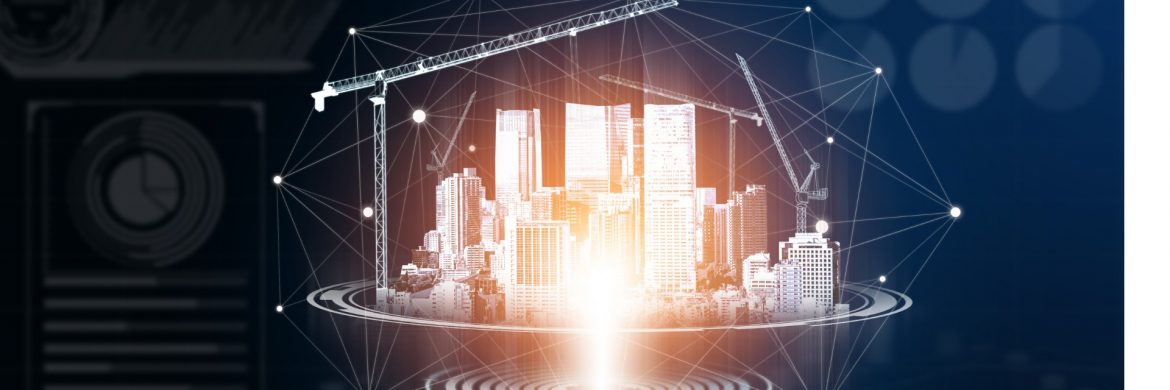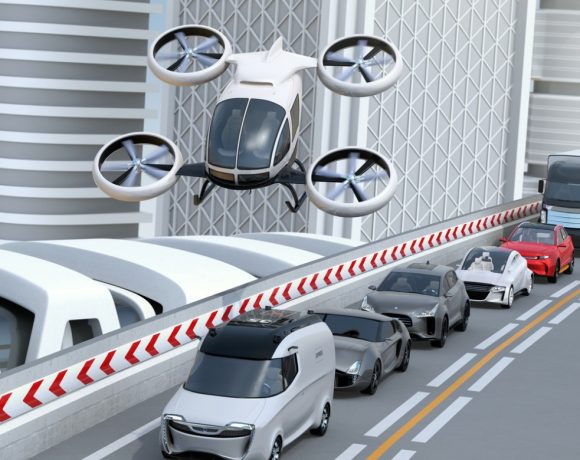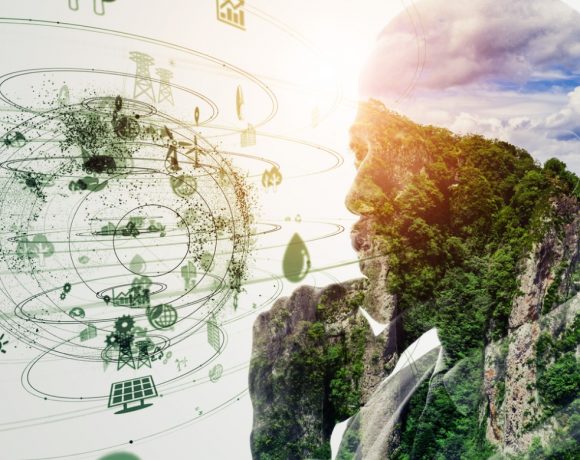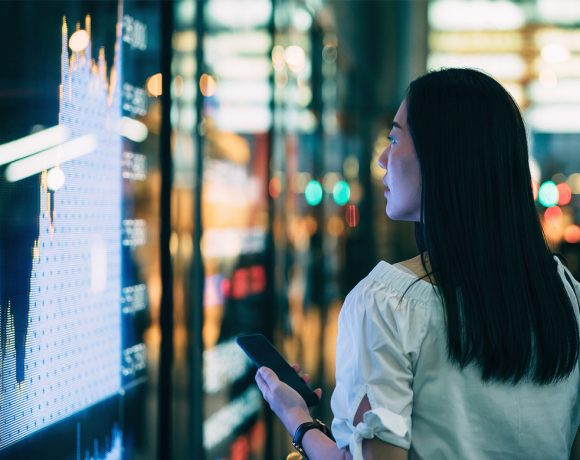- 2022 will reveal the true potential of a hybrid work environment. Employees of different generations and at different levels of the hierarchy often disagree about how much they need to work in the office and how much they can work remotely.
- Over the decades, smart city narratives have become more techno-centric and modern cities look at different methods to solve challenges, where technology can play a role or be an enabler.
- New services have accelerated under the current pandemic, with a priority focus on urban mobility: EV charging app services and infrastructure, battery swapping stations for light professional urban delivery, and micro-mobility services.
- Southeast Asia is home to 25% of investible forest carbon, close to 50% of the world’s blue carbon habitats and 97% of global peatland carbon sinks, which give Asian cities the potential to be a leader in nature-based solutions.
- Live and work digitally, based anywhere in the world. This rapid yet necessary acceptance of new working cultures and shared team responsibilities has led to new opportunities and architecture will need to be designed much better, completely differently, and faster at a lower price to meet the new demand.
Keeping his platform cities in mind, Fabien Clavier invited five experts, coming from different backgrounds and working in different sectors (start-up, VC, academia, corporate,and multilateral organisation) to share their views about the future of cities in the south-east Asian region. What resulted was a non-exhaustive but thought-provoking list of the many trends that will impact cities in the region, which gave one a taste of the questions that are agitating Asia’s urban space.
Accelerating Nature-Based Solutions in Cities: Marie Cheong
Nature-based solutions are solutions which conserve and increase the amount of carbon captured and sequestered in natural environments. There is incredible potential for Southeast Asia to be a leader in this space and make an immediate and significant impact on climate change. Yet, few scalable solutions exist.
Close to 1/3 of our emissions come from land-use change and forestry. Southeast Asia is also home to 25% of investible forest carbon, close to 50% of the world’s blue carbon habitats and 97% of global peatland carbon sinks. Urbanisation will continue to be a megatrend in the region. Working out how to combine this with scalable solutions that protect and create economic opportunities with the natural resources we have is critical to our region and the global assault on climate change. There are also a lot of innovations in that space ( greening roofs, buildings and cities) that could be unlocked.
Marie Cheong is a Founding Partner at Wavemaker Impact (WMi), the first VC backed climate venture builder in Southeast Asia. WMi supports sustainability-focused businesses with proven entrepreneurs and its goal is to reduce 10% of the global carbon budget by 2035. WMi provides the opportunity areas, domain expertise, corporate partnerships and capital to launch and accelerate climate tech ventures in the region.
A New Architecture of Hybrid Work: King Wang Poon
In 2022, we will find out how hybrid our work environment can be. The battle lines are already being drawn. Employees of different generations and at different levels of the hierarchy often disagree about how much they need to work in the office and how much they can work remotely. It does not look like this disagreement will be resolved readily.
But resolving this is crucial to the future competitiveness of companies, cities, and countries. They can either choose to become more productive, improve well-being, and seize international opportunities, or they can continue disagreeing and let the world pass them by.
We can only resolve this if we look at jobs and work at the task level. By being clear which tasks can be done well and where, we begin to build a shared view of our hybrid future. At the same time, we can also better assess which technologies and processes best secure that future. By looking at the resolution of tasks, we can build a new “architecture” of work for a future forged from the experiences of the pandemic.
King Wang Poon is the Director of the Lee Kuan Yew Centre for Innovative Cities at the Singapore University of Technology and Design, where he heads the Smart Cities Lab and the Future Digital Economies and Digital Societies initiative. With his team, he researches the human dimensions of smart cities and digital economies, and their impacts on the future of work, education, and healthcare, as well as society.
Modern and Smart Cities will Focus on Innovation, and not (only) Technology: Riad Meddeb
The new smart, modern cities are not focused on technology anymore, but on how they create new services and improve existing ones with innovative, bold and creative solutions. Over the decades, smart city narratives have become more techno-centric and the global spotlight has been directed to those cities that are deploying new and cutting-edge technologies. More and more, modern cities look at different methods to solve challenges, where technology can play a role or be an enabler. Bold initiatives, institutional arrangements, regulations and solutions are receiving growing attention and are being used experimentally and adapted worldwide.
This shift can help to correctly frame the expectations around technology, and motivate more mayors and city officials, especially in low and middle-income countries, to explore and experiment with new solutions to solve urban challenges that do not need to be intensive on technology. In many cities, this approach will also imply increased efforts to collaborate with the local innovations, ecosystems and citizens, and the ability to adaopt more experiences from peer cities.
Riad Meddeb is the Director ad-interim of the UNDP Global Centre for Technology, Innovation and Sustainable Development, based in Singapore. The UNDP Global Centre is a hub for knowledge and policy relating to sustainable development, connecting policymakers, practitioners, think-tanks, businesses for learning and sharing of best practices on the themes of technology, innovation, and partnerships.
The Rise of New Intelligent Asset Service Providers in Cities: Julien Mialaret
We are seeing a growth of new app and web-based services for urban dwellers in large Asian cities, enabled by light, connected infrastructure.
New services have accelerated under the current pandemic, with a priority focus on urban mobility: EV charging app services and infrastructure, battery swapping stations for light professional urban delivery, and micro-mobility services. Other services are being addressed: healthcare with rapid diagnostic stations, food and beverage with robotics-powered pizza stations, craft coffee etc..
This could tremendously transform the way operators and users access services in cities, in the context of accelerated digital transformation. The services require significant capital inflow at launch to finance infrastructure, but once revenue models are proven, the companies finance with debt and focus on data platforms and services. Eurazeo has successfully financed several such services including Immotor (China), DST Car (China), Bird (US), Volta Charging (US)
Julien Mialaret is Operating Partner at Eurazeo, a global investor in technology, with offices in Paris, London, Berlin, Shanghai, Seoul and Singapore. Eurazeo’s Smart City Fund focuses on digital innovation and new technologies in property, transportation, logistics, energy, and industry 4.0. The fund is global and active in EMEA, US, China and Southeast Asia.
The Collapse of Architecture as We Know It: Camiel Weijenberg
Live and work digitally, based anywhere in the world. This rapid yet necessary acceptance of new working cultures and shared team responsibilities has led to new opportunities.
Removing the constraint of where you are located and focusing on working digitally (remotely), effectively creates two spaces affecting housing prices/availability/movement/travel, etc. This duality in space matters as it’s a paradigm shift in thinking about ‘working and living.’ In addition, the impact of choosing environment-conscious means of transport is imminent and required. The demand for fundamental changes needed in designing and building cities requires new ways of approaching a new series of problems. Buildings will need to be designed much better, completely differently, and faster at a lower price.
This will lead to important challenges but also new opportunities for the Architecture, Engineering and Construction (AEC) industry.
Camiel Weijenberg is the Co-Founder and CEO of Digital Blue Foam, a Singapore-based start-up that has created an eponymous software that hunts, gathers and computes contextual data such as climate, program and urban networks to determine the right building configuration, using advances in artificial intelligence, generative design, and web-based 3D visualisation.
(An earlier version of this article was published on the Cities in Mind platform on Feb 2, 2022.)






NO COMMENT